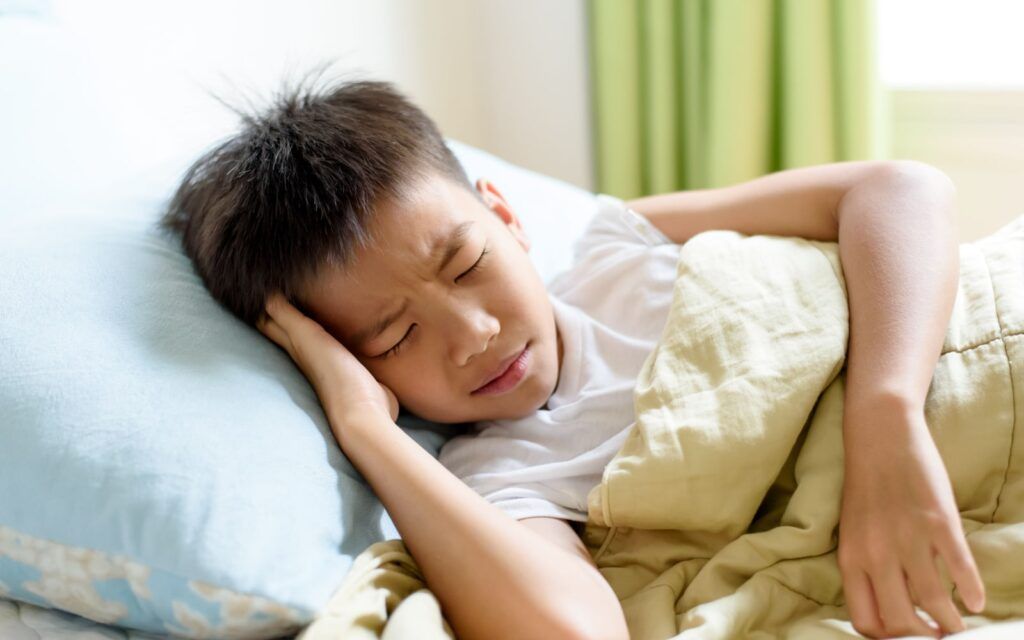Sleep apnea is a common sleep disorder that causes a person to stop or pause breathing during sleep. While this condition is often associated with adults, it’s important to recognize that children can also be affected by this condition. Pediatric sleep apnea doesn’t just disrupt the child’s sleep but can also have significant implications for their oral health. In this article, we’ll explore the oral health implications of pediatric sleep apnea and shed light on how we can work to diagnose, treat, and manage this condition.
Understanding Pediatric Sleep Apnea And How It Can Be Treated
Pediatric sleep apnea is a condition where a child experiences repeated or complete block of their airways during sleep. This blockage can lead to a reduction in their oxygen levels and disrupt their normal sleeping patterns, which can result in various health complications. While it can be difficult to determine if a child has sleep apnea, identifying the signs and symptoms is important. Here are some of the indicators you should look out for:
- Snoring: Loud and persistent snoring is often the most noticeable symptom of sleep apnea in children.
- Restless sleep: Children with sleep apnea may exhibit frequent tossing and turning during sleep.
- Pauses in breathing: Observe if your child experiences a pause in breathing during sleep.
- Mouth breathing: Sleep apnea can cause children to breathe primarily through their mouth instead of their nose.
- Daytime sleepiness: Children with sleep apnea may exhibit excessive daytime sleepiness or difficulty staying awake.
- Behavioral changes: Sleep deprivation can lead to irritability, mood swings, and poor concentration in children.
- Poor academic performance: Chronic sleep deprivation can impact a child’s cognitive abilities and academic performance.
- Bedwetting: In some cases, sleep apnea has been linked to nocturnal enuresis (bedwetting).
- Growth issues: Severe cases of sleep apnea can lead to growth problems in children.
The Oral Health Implications of Pediatric Sleep Apnea
Pediatric sleep apnea can significantly impact your child’s oral health. When your child experiences sleep apnea, they can experience any of the following problems later on in life:
- Malocclusion: Chronic mouth breathing, often associated with sleep apnea, can lead to malocclusion (misalignment of the teeth and jaws). This can result in an improper bite and potential orthodontic concerns.
- Bruxism: Sleep apnea can contribute to developing bruxism (teeth grinding) in children. This can lead to tooth wear, jaw pain, and headaches.
- Tooth decay: Breathing through the mouth can cause dryness of the oral tissues, reducing saliva flow and increasing the risk of tooth decay and cavities.
- Gingivitis and periodontal disease: Reduced saliva flow can also contribute to gum inflammation (gingivitis) and, if left untreated, progress to periodontal disease.
- Facial abnormalities: In some cases, pediatric sleep apnea can lead to facial abnormalities, such as long-face syndrome or changes in jaw development.
- Enlarged tonsils and adenoids: Sleep apnea is often associated with enlarged tonsils and adenoids, which can obstruct the airway and contribute to breathing difficulties.
- Poor oral hygiene: Sleep-deprived children may have difficulty maintaining proper oral hygiene practices, leading to a higher risk of oral health issues.
At Tulsa Precision Dental, our team focuses on early detection and intervention when faced with the possibility of pediatric sleep apnea. To address pediatric sleep apnea, our dentists can offer the following services:
- Dental Examinations: Our dental team performs thorough examinations to assess your child’s oral health, including evaluating their bite, tooth alignment, and any signs of tooth grinding or tooth decay.
- Airway Evaluations: We assess the airway passage to identify potential obstructions, such as enlarged tonsils or adenoids, which may contribute to sleep apnea.
- Oral Appliances: Our team can also provide custom-made oral appliances to help improve airway patency during sleep, promoting proper breathing and reducing the severity of sleep apnea symptoms.
- Referral to Specialists: Our team collaborates with pediatric sleep medicine specialists, ENT (ear, nose, and throat) specialists, and orthodontists to ensure a multidisciplinary approach to your child’s care.
- Oral Hygiene Guidance: We work to educate both children and parents on proper oral hygiene practices to maintain healthy teeth and gums, despite the challenges associated with sleep apnea.
- Orthodontic Treatment: When malocclusion is present, our orthodontic options can help correct the alignment of teeth and jaws, improving overall oral health and addressing sleep apnea-related issues.
Managing Pediatric Sleep Apnea at Tulsa Precision Dental
At Tulsa Precision Dental, we emphasize the importance of long-term management and follow-up care for patients with pediatric sleep apnea. Identifying and treating the early signs of pediatric sleep apnea is important as a condition that can impact a child’s oral health and well-being. If you wish to learn more about our services, contact our practice in Tulsa, OK, today by calling (918) 492-1917 to schedule an appointment with Dr. Chris and Kristie Vinson and ensure your child’s oral health remains in optimal condition, contributing to their overall quality of life.




